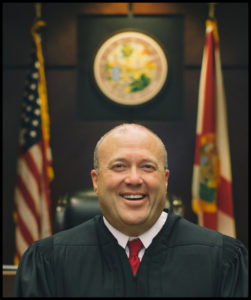
Sometimes ‘the lawyers know too much’
 By Layne Smith
By Layne Smith
Special to the Outlook
A stanza from a Carl Sandburg poem reads:
“Why is there always a secret singing, when a lawyer cashes in?
Why does a hearse horse snicker, hauling a lawyer away?”
Sandburg provides his answer to these questions in the poem’s title, “The Lawyers Know Too Much.”
Q. Judge Smith, what is the meaning of the legal term “discovery,” and can you provide examples to explain the concept? Thank you, Laura
A. Laura, “discovery” involves gathering and exchanging case-related information and providing sworn answers to case-related questions. This is accomplished by interrogatories, requests for admission, requests to produce and depositions. Let’s discuss each discovery tool, and I’ll provide examples.
Interrogatories are written questions from one party to another. They must be answered truthfully in writing, subject to the penalties of perjury.
Suppose the plaintiff in a car accident case sues the owner of the other vehicle to recover damages. She may already have hired a road accident lawyer for Personal Injury claims. Because she claims lost income, the defendant needs to determine her work history and compensation before and after the accident. To gather this information, the defendant may serve the plaintiff with interrogatories asking about her education, training, dates of employment, and rates of pay.
It’s wasteful to litigate undisputed facts, and requests for admission allow parties to ask their opponents to admit uncontested facts that are relevant to the case. In our example, the plaintiff may ask the defendant to admit “at the time of the collision, the truck driven by the Defendant rear-ended the car driven by the Plaintiff.”
Often, parties need access to documents or tangible things possessed or controlled by others. They can gain access to information by serving their opponents with requests to produce, or by subpoenaing information from third-parties. In the car accident case, the defendant may request the plaintiff produce her W-2 statements to confirm her income and her medical records to verify her injuries and the status of her health.
Parties frequently use a combination of interrogatories, requests for admission and requests to produce to gather the information they need to take depositions. Discovery depositions are sworn oral testimonies that are recorded and can be transcribed.
During depositions, lawyers should ask questions directly related to the case or “reasonably calculated to lead to the discovery of admissible evidence.” Lawyers ask open-ended questions to gather information and narrow questions to lock in answers. At trial, they make use of deposition testimony to ask adverse witnesses leading questions and to impeach witnesses who change their stories.
Discovery reveals the strengths and weaknesses of cases, prevents surprises, and promotes settlements or decisions on the merits. Good lawyers use discovery to learn enough about their cases. Bad lawyers abuse discovery by overdoing it and being inefficient and repetitious. Thus, the secret singings and hearse horses’ snickers should be reserved for them, because bad lawyers often do know too much.
J. Layne Smith is a Leon County Judge who often speaks and writes about civics, the law and the administration of justice. Email your questions to askjudgesmith@gmail.com.







